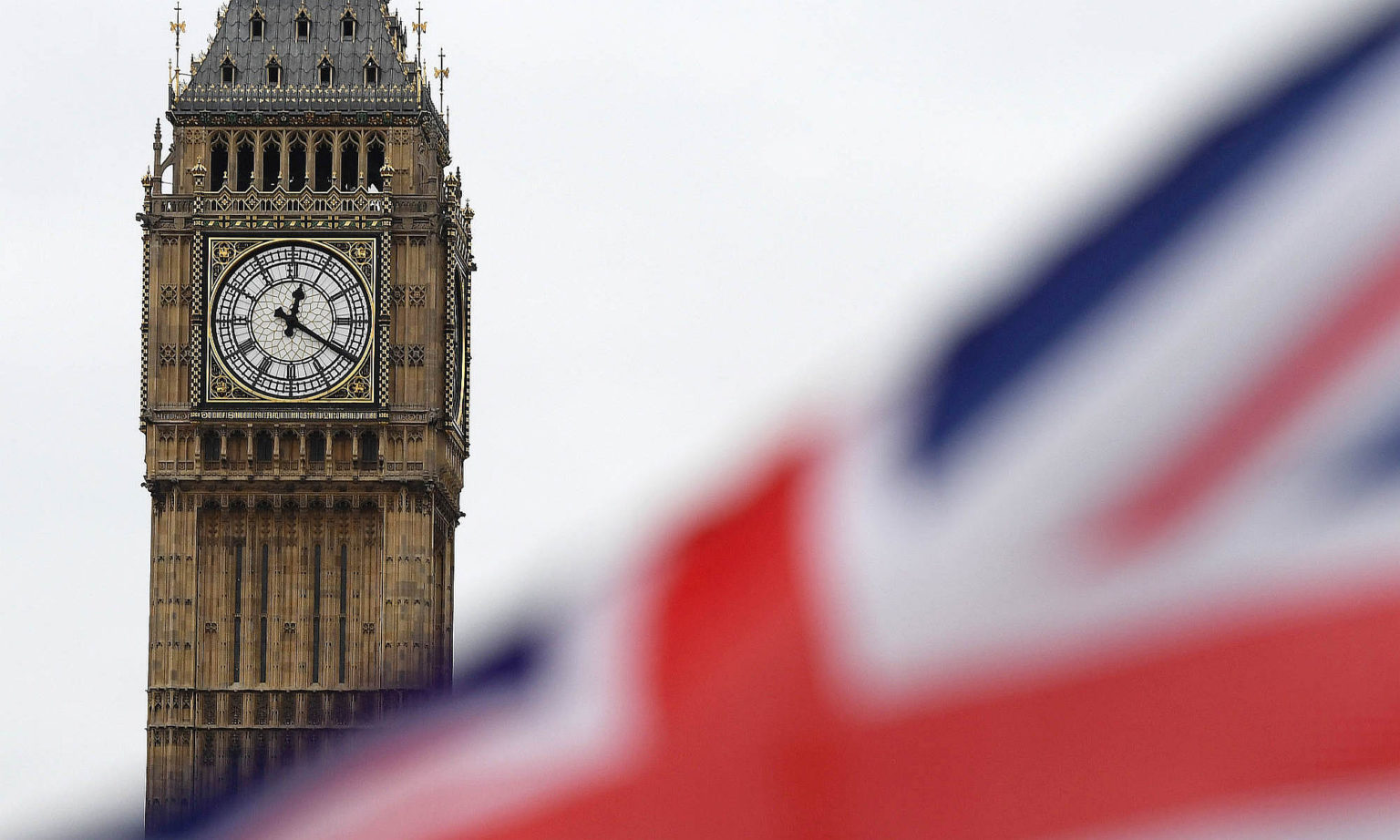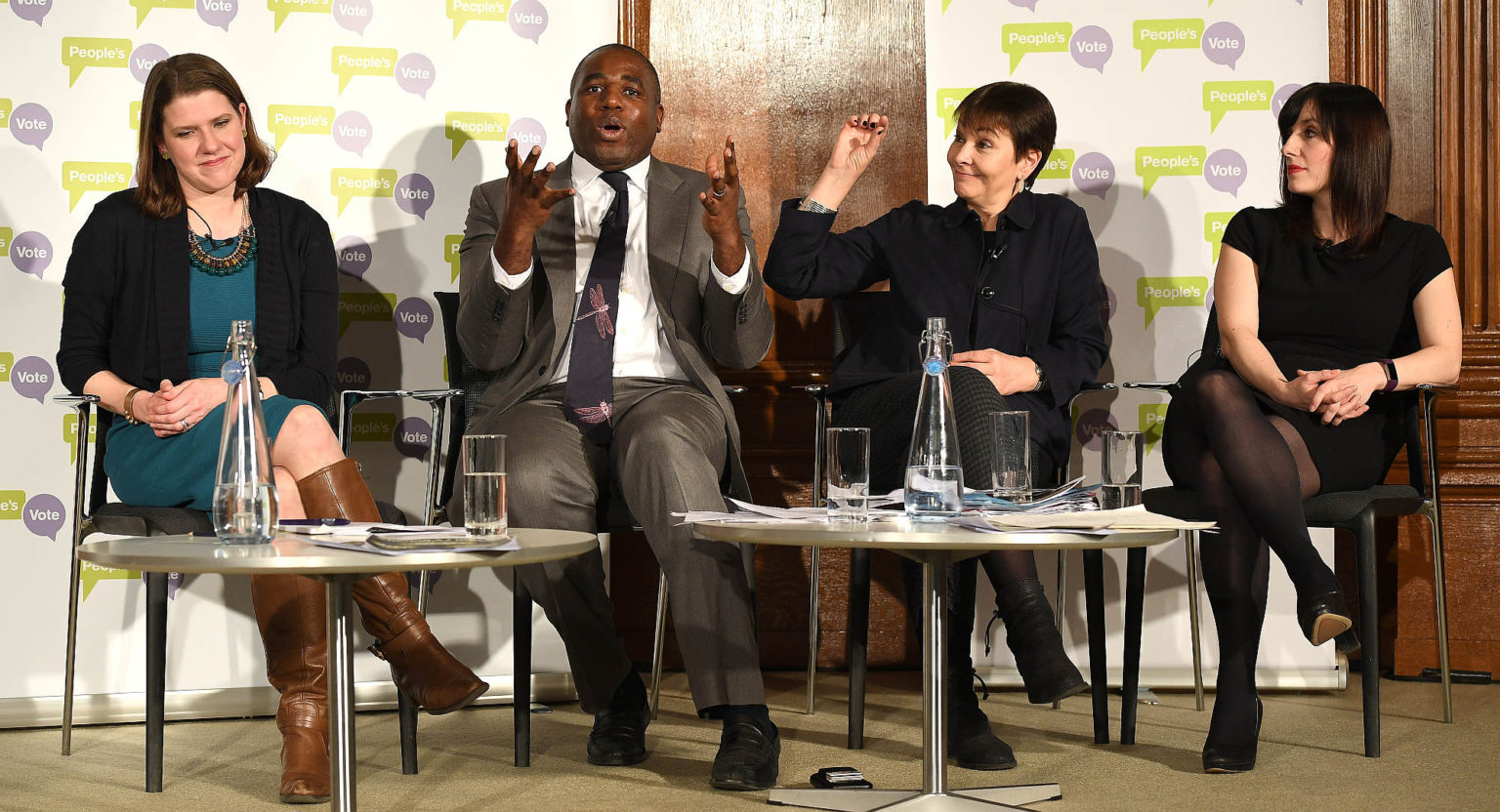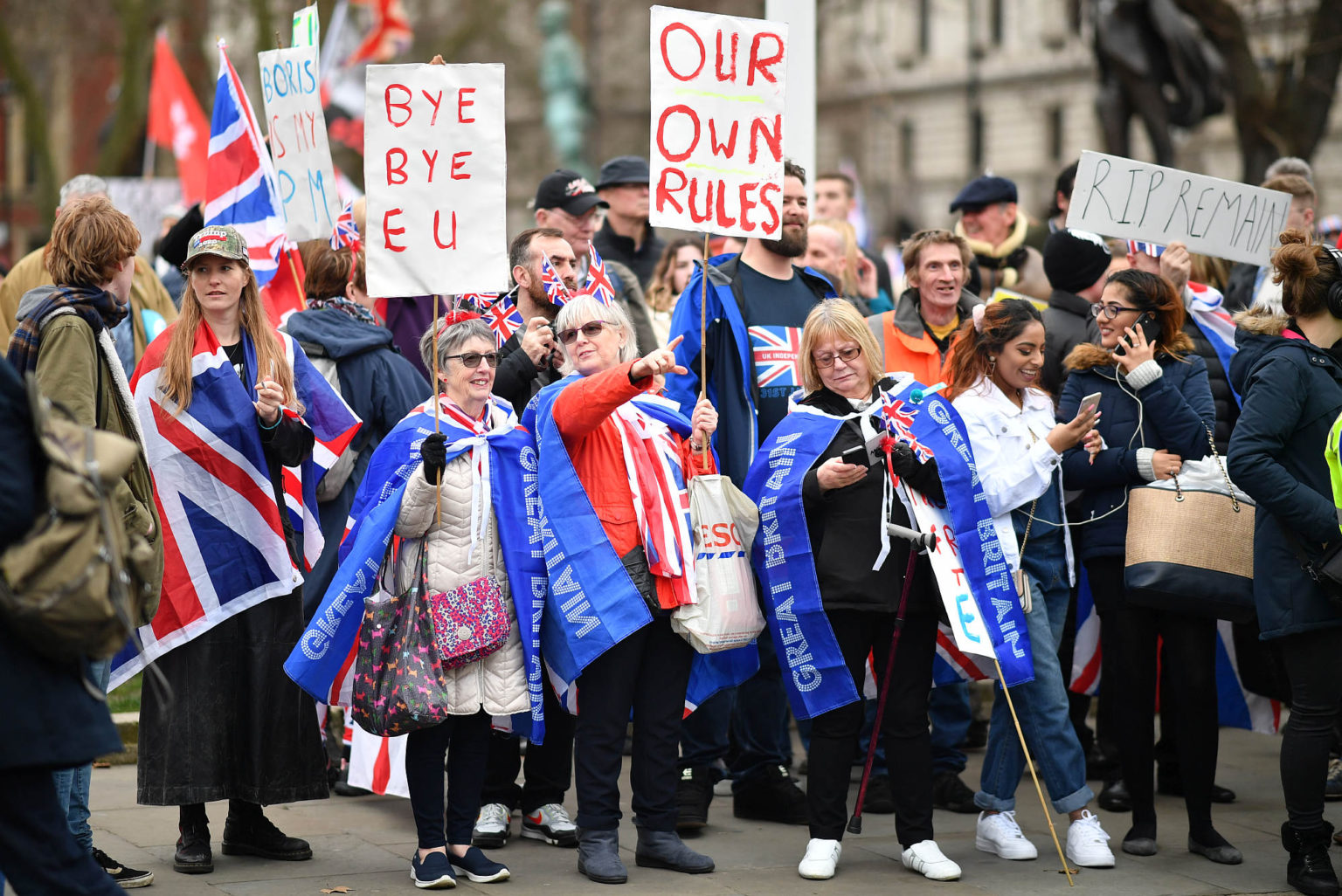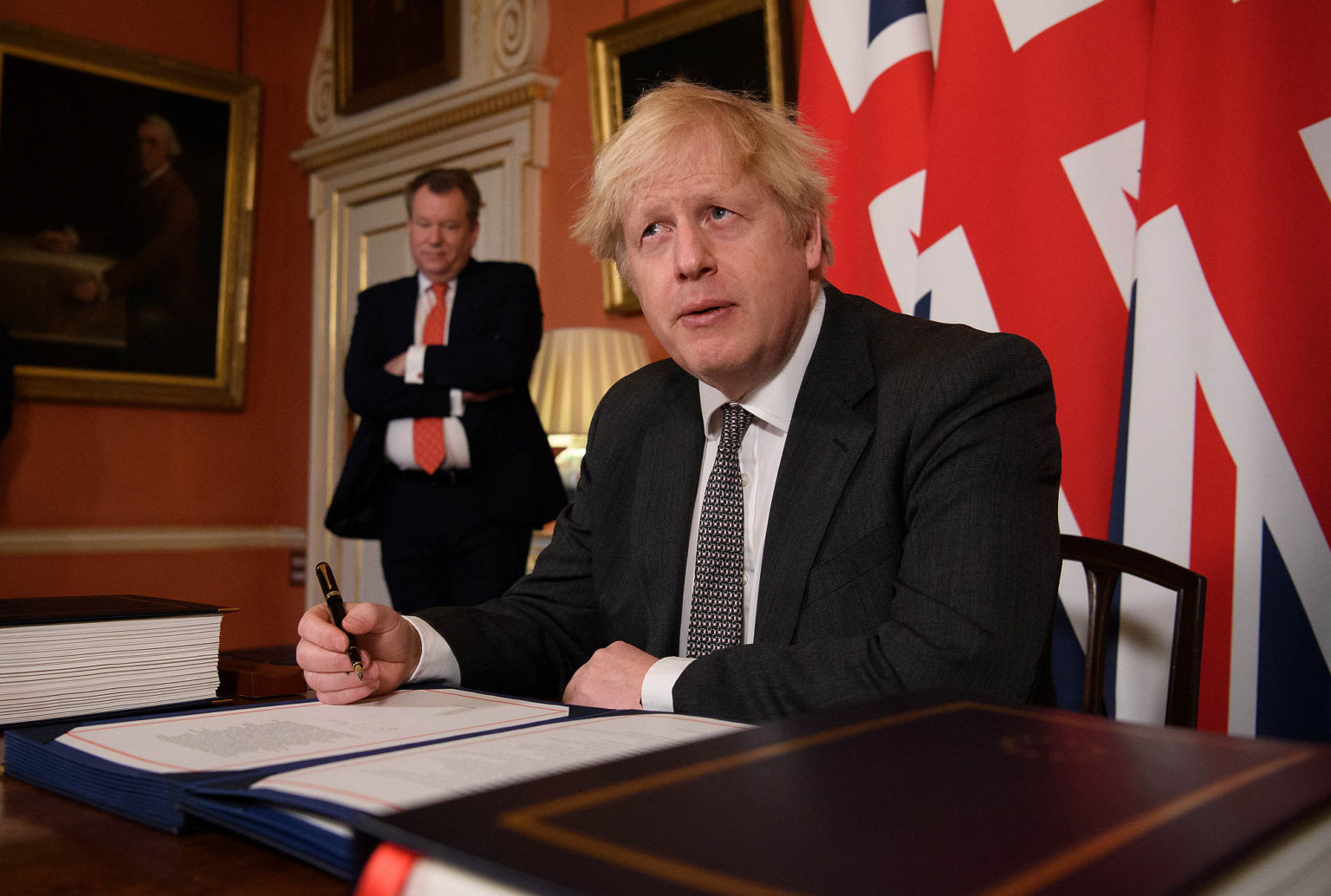
Long-read
The war for democracy is only beginning
Brexit was the first great battle in a far broader struggle for real people power.
Want to read spiked ad-free? Become a spiked supporter.
‘The war is over.’ Those were Nigel Farage’s words when it was announced that, at the last minute in a year of transition, the UK had struck a trade deal with the European Union. Yes, some of the deal is iffy, especially on fish, Northern Ireland and the creation of new UK-EU committees, but ‘on the big stuff’, said Farage, this is the end of the war. Boris Johnson deserves credit, Farage later wrote in the Daily Telegraph, for ‘bringing the Brexit wars to an end’.
Farage has been right about many things in recent years, and he deserves a great deal of the credit for bringing about the 2016 referendum in which 17.4million people expressed their democratic desire to free the UK from the EU. But on this matter, on this ‘war’, he is wrong. The war is not over. It has only just begun. Brexit is best seen as the first battle in the war; as the first stand-off in a far broader struggle to take back control, not merely from Brussels but from our own elites. The war for democracy must continue, and with vigour.
Farage and others are right to see the trade deal as a very significant moment. Even those of us who are concerned about aspects of the deal – the political annexing of Northern Ireland, the UK’s continued lack of control over its waters, our ongoing submission to certain globalist treaties – can and should celebrate the deal as yet another blow to the Remainer elites who still thought, right up until the deal passed through parliament, that they could obstruct Brexit and in the process bin the votes of 17.4million of their fellow citizens.
Watching MPs voting the trade deal through by 521 votes to 73 was a stirring moment. It will go down in British political history as a key instance of the British people bringing their political masters to heel. For make no mistake – many in parliament, especially in the Labour Party and the Scottish National Party but in sections of the Conservative Party too, would rather that Brexit never happened. Some of them, in the long, scandalous two years of the Remainer Parliament between 2017 and 2019, did everything within their power to stop Brexit and to silence the democratic roar of the British people. They will have voted for the trade deal with gritted teeth, but they had no option. We made them do this. Our democratic perseverance between the referendum in 2016 and today is the force that was weighing down on them, far more so than the whips of their own parties.
So the passing of the trade deal is a moment to savour. Even as the government compromises too much to the EU, we can still see in the passage of this deal the people power that was first unleashed in 2016. Indeed, the very existence of the deal is testament to the nearly five-year-long determination of the British people to have their democratic wishes enacted. If the elites had their way, there would have been no trade deal; we would never have reached the point of working out how the UK and the EU should relate to one another post-Brexit. No, Brexit would simply have been stopped. In the words of that arch anti-democrat David Lammy, the Labour MP who furiously devoted himself to thwarting the most important democratic vote ever cast in this country, ‘we can stop this madness and bring this nightmare to an end’. He said that one day after the referendum. He said to his fellow MPs, many of whom were also seething about the temerity of the dimwitted public in voting for Brexit: ‘Wake up. We do not have to do this.’
But they did have to do it. Why? Because we forced them to. We used our right to vote to emphasise the superiority of popular sovereignty over parliamentary sovereignty, of the people’s will over the alleged expertise of our elected representatives. We made our point time and again, peacefully and forcefully. We made it in the 2016 referendum (in which 17.4million of us voted to leave); and in the 2017 General Election (in which 80 per cent of us voted for parties that promised to enact Brexit); and in the 2019 European elections (in which the Brexit Party came top); and of course in the 2019 General Election, in which Boris Johnson and his promise to ‘Get Brexit Done’ won a historic democratic mandate, including from millions of working-class Labour voters who revolted against Labour over its anti-democratic, anti-working-class promise of a second referendum. In plain English: its promise to void the largest vote in UK history, to subvert the franchise itself.

It is as a result of this democratic pressure, this constant, measured, principled restatement of the people’s will, that we even got to the stage of trade talks and that 521 MPs voted through a trade deal that will make the thing many of them loathe so much – Brexit – a reality. Those 521 MPs include David Lammy. ‘We do not have to do this’, he said in 2016, in that heady, deranged moment when the political, media and cultural establishments looked with horror upon the vote for Brexit and started to plan its overthrow. ‘You do have to do it’, the people said. And so they did it. Lammy and the others eventually obeyed the people. The trade deal is very far from perfect, but its existence and its approval are proof of the power of democracy. Brexit could not be stopped. The people made sure of that. This is a historic win for democracy.
But this past year of trade talks and upsets and fallouts has also illustrated where the real threat to democracy comes from. It comes from within the UK itself. Yes, the European Union, as spiked has been arguing for the 20 years we have been publishing, is a menace to democracy in Europe. It exists precisely to insulate national elites from public pressure, to create a space in which laws, regulations and priorities can be made far from the madding crowds of voters and citizens. Its inherent anti-democracy can be seen in its day-to-day running, in which an unaccountable commission makes law and a sham parliament rubber-stamps it, and in its authoritarian fury in response to any European people that dares to vote against it. The Irish, the French, the Dutch, the Greeks — all have seen their democratic votes against EU constitutions, treaties or austerity packages ignored, written off as if they were the insignificant ramblings of an uneducated throng.
And this past year, too, as in the preceding three years, we’ve seen the European Union’s hostility to democracy on full display in its dealings with UK governments. From seeking to keep parts of the UK beholden to Single Market regulations to undermining British sovereignty over British waters, from Donald Tusk’s claim that there is a ‘special place in hell’ for Brexiteers who lack a coherent plan to Guy Verhofstadt’s description of Leavers as the ‘real traitors’, the EU oligarchy has shown nothing but contempt for British democracy and has actively sought to constrain and obstruct it. I often hear from Remain voters who say their minds have been utterly changed by the behaviour of the EU over the past four-and-a-half years, and who say that if they could go back to 2016 they would vote Leave.
And yet, where has the real battle over democracy taken place these past four years? It has been right here, in the UK. The most passionate conflicts over the vote for Brexit, and over the entire idea of democracy, have occurred on British soil, and in British institutions, and on British streets. Of course the talks between the EU and the UK were tense, often giving off the vibe of a neo-imperial power looking down its nose at an uppity colony daring to break away. But the ‘war’ that Farage talks about has been a British one. It has been a civil war – in the words of arch Remainer Polly Toynbee, there has been a ‘whiff of civil-war cordite in the air’ in Brexit Britain – far more than it has been a war between the UK and the EU.
This tells us something very important about the Brexit era, and why this era is far from finished. It tells us that the EU is largely a manifestation of our own elites’ hostility to democracy. It confirms that the strange, unconvincing devotion to the EU that exists in significant sections of the political and chattering classes is directly proportionate to these people’s antagonism towards the idea of the wisdom of the crowd. It suggests that the ‘European issue’ is fundamentally a projection of a national tension — in this case of Britain’s own historically unresolved battle over democracy and power.
That’s why the greatest animus to Brexit was expressed not by EU officials, but by British politicians and British campaigners and members of the British media and cultural elites. It was they who openly raged against the ‘low-information’ electorate. It was they who spread conspiracy theories about the co-option of British plebs’ minds by nefarious Big Tech and evil Russians. It was they who called on the authorities to prevent the enactment of the vote for Brexit. It was British MPs who pushed aside almost every other issue and matter of business during the two-year reign of the Remainer Parliament and plotted ceaselessly to stymie or thwart our vote. It was British businessmen and businesswomen who spent millions of pounds on trying to block Brexit. It was British lawyers, barristers and Supreme Court judges who wielded the law as a weapon against Brexit.

It was the British liberal elite who gathered in the streets in their tens of thousands explicitly to demand the revocation of the votes of millions of working-class people. These extraordinary displays of middle-class bigotry and anti-democracy summed up what the ‘European issue’ is really about: it is the means through which our own elites distance themselves from the demos and insulate their ideologies and their policies from the scrutiny of voters. To these people, to these political, media and cultural players who devoted so much energy, time and money to trying to keep Britain in the EU, the importance of the EU lies in the insulation it provides between politics and people; between the making of laws and the citizens expected to live by those laws; between us and them.
This explains the peculiar, sometimes visceral emotion that was on display in these mass gatherings of privileged liberals. Their EU-themed clothing, their blue-painted faces, the fury and sometimes even anger with which they waved the EU flag… all of this was an expression not so much of these people’s fealty to Brussels (many of them lack a keen understanding of how Brussels works and probably could not name a single European commissioner), but rather of their distance from the British masses. EU paraphernalia came to symbolise, not love for the EU, but fear and loathing of democracy here at home; not unflinching loyalty to Michel Barnier, but revulsion at the idea that ordinary Britons should enjoy the same electoral power as us.
The EU is largely a projection — a hugely influential projection which over the years has assumed real, tangible and increasingly independent power, but a projection nonetheless. It is a projection of various national governments’ desire to do politics away from their electorates. It is a projection of our own elites’ preference for rule by experts over rule by the masses. It is a projection of one of the central ideological beliefs of the liberal establishments of late 20th-century Britain and other European countries — that this interconnected, troubled world is far too difficult to be understood or dealt with at the local, democratic level, and therefore we need rarefied global institutions in which big ideas can be discussed and big decisions taken.
This is why some on the right have been wrong over the years to dismiss the EU as the handiwork of continental Europeans, usually Germans, who want to get one over on plucky Britain. No doubt Germany and France wield extraordinary power in Europe via the institutions of the EU, which of course is an affront to the ideal of national equality that everyone who believes in sovereignty and self-determination should support. But the overemphasis on European hostility to the UK has drawn attention away from what has really motored the ‘European issue’ in British politics — namely, the British elites’ own hostility to British democracy. The EU is not a dastardly plot by Germany. It is the means through which national elites — very notably including Britain’s — have willingly pooled their sovereignty, weakened their institutions of democratic accountability, and lessened the power of their electorates to shape the political future of their nations.
That is why Brexit has been a civil war more than a colonial one. And that is why the broader war, counter to what Nigel Farage says, is not over. How could it be? The powerful political and cultural forces in the UK who projected and institutionalised their turn against democracy into the mechanisms of the EU have not gone away. Recent events are grim testament to that. All their beliefs that they folded into the position of being ‘pro-EU’ – technocracy is preferable to democracy; experts know better than ordinary voters; some issues are too big to be dealt with by mere citizens – are still central to the establishment in this country.
Including Downing Street itself. The Johnson government’s willingness over the past 12 months to use executive power to freeze almost every civil liberty we enjoy, and its oft-stated devotion to prioritising the alleged ‘global challenge’ of tackling climate change, and its abject failure to confront the orgy of wokeness and national self-flagellation that exploded in the UK following the murder of George Floyd in the US – all these things suggest that even central political figures who have benefitted enormously from the Brexit moment do not truly understand the democratic conviction, national self-belief and antipathy towards elite consensus opinion that forged, over decades, the people’s determination to strike back against the elites and to remove the UK from the EU.
If the UK’s relationship with the EU was in large part a manifestation of the UK elites’ loss of belief in democracy, then it stands to reason that our leaving of the EU is but a first step. An incredibly important first step, but a first step nonetheless. This is not to downplay Brexit. To my mind, Brexit is the most important political achievement in postwar Britain. It has unquestionably made the UK a more democratic country. In the words of The Sunday Times, the end of the transition period – 31 December 2020 – will give rise to a situation in which ‘British citizens will arguably be closer to political power than they have been for decades’. The point, however, is that we will be closer to a form of power that still largely cleaves to the technocratic, ‘expert’-driven worldview that propelled our elites to prefer EU obfuscation over their citizens’ own views in the first place.

Brexit’s greatest strength lies in its clarity. It has clarified so much. It has exposed the fragility of democracy in this country – it nearly fell many times over the past four-and-a-half years. It has shone a rude light on the cultural elites’ contempt for mass involvement in political life. And it has ripped away a key part of the protective gear that our establishments wore to protect themselves from the cries and demands of their own people. Now we must use this clarity to push harder for the realisation of genuine democracy and for ever-more popular forms of sovereignty in the UK in the coming years.
Those who say we should rise above the divides of the past four years and forget about the Leave-Remain civil war are being naive. The division exposed by the events of 2016 is far too large, profound and historic to be resolved by our leaving of the EU. The chasm between the elites and the people cannot be bridged even by Brexit. Far more work must be done to keep in check the technocratic and illiberal arrogance of our rulers and to ensure the flourishing of the democratic will. Far more ideologies and institutions will need to be challenged and ideally dismantled if the Brexit spirit – the desire of the British people to be the authors of their destiny – is to be truly let loose.
2021 should be built around discussions of how to expand and deepen democracy in this country (as well as around Covid and lockdown, of course). spiked has already set out some starting points for these discussions, in our programme of radical democratic reform that we published in July 2019. Our first proposal – leaving the EU – has been achieved. Next there must absolutely be a referendum on abolishing the House of Lords, so that we might once and for all rid our public life of these remains of aristocratic tyranny. A referendum on the Lords would unshackle the democratic spirit of debate, argument and conflict in an even greater way than the EU referendum did. We should also abolish the Royal Prerogative that allows prime ministers to behave as monarchs and to take serious, nation-changing decisions without recourse to parliament, never mind the public. We should reform our electoral system, replacing the first-past-the-post system with proportional representation, which would shake up the two-party system and create the conditions for new parties and movements to bloom. We should kick judges out of politics, limiting judicial interference in the decision-making of elected representatives. And we should have more referendums. Every matter of constitutional importance should be submitted to the people for their approval.
2016 was an important year because it confirmed, or rather revealed, that the battle for democracy we thought had been won has not been won at all. The work of the great heroes of British history – the Levellers, the Peterloo marchers, the Chartists, the Suffragettes – continues. There are still too many layers of bureaucracy and peers and ‘expertise’ and mystification between the people and the levers of power. Let the war against it all begin. But first, let’s celebrate this new year, which will be the first year of many in which, thanks to the wisdom and patience of the British people, we will not be beholden to the rules of the EU oligarchy. That’s something worth raising a glass to – democracy.
Brendan O’Neill is editor of spiked and host of the spiked podcast, The Brendan O’Neill Show. Subscribe to the podcast here. And find Brendan on Instagram: @burntoakboy
Photos by: Getty Images.
Who funds spiked? You do
We are funded by you. And in this era of cancel culture and advertiser boycotts, we rely on your donations more than ever. Seventy per cent of our revenue comes from our readers’ donations – the vast majority giving just £5 per month. If you make a regular donation – of £5 a month or £50 a year – you can become a and enjoy:
–Ad-free reading
–Exclusive events
–Access to our comments section
It’s the best way to keep spiked going – and growing. Thank you!








Comments
Want to join the conversation?
Only spiked supporters and patrons, who donate regularly to us, can comment on our articles.